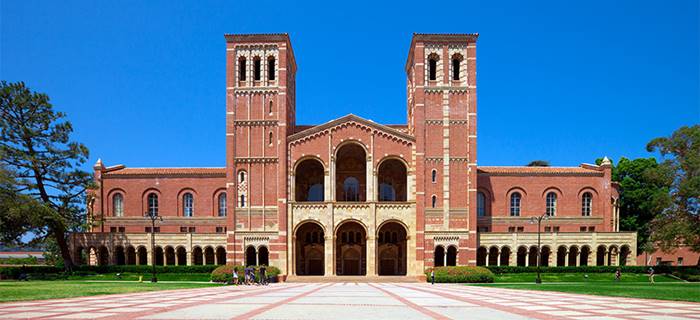MSC DEGREE (MASTER OF SCIENCE)
Know All About The MSc Degree

What is Msc Degree?
MSc or Master of Science is a degree awarded for completion of graduate-level study in a science or technology related field. Typically, an MSc degree program lasts 18-24 months and there is a wide palette to choose from.
An MSc degree is for someone who wants to up their technical understanding on some topic they studied in their undergraduate program or is looking greater access to opportunities and career change.
Not surprisingly, universities that offer Master of science degrees only offer those degrees to students who study more scientific topics. You might earn an MSc in Engineering, Chemistry, Biology, or another similar field. You typically cannot earn an MSc degree in any field outside of science and engineering.
Who is MSc Degree ideal for?
Pursuing a Master of Science Degree is suitable for those who have a passion for engineering and would like to pursue it professionally.
Usually, the curriculum is better as compared to what was taught in B.Tech/B.E. and you are more exposed to practical applications. If you’re looking for more insights into topics you studied in your undergraduate program, you should pursue an MSc degree.
If you’re looking for something that can significantly improve your career prospects in the corporate world, you should pursue a master of science degree. Your enhanced qualifications will probably earn you a promotion or get you into a higher pay grade.
An MSc degree is a must for students to progress to the Ph.D. level.
What are the different streams that can be pursued with an MSc Degree?
There are various streams in which one can get his MSc Degree.
The Most popular ones are as follows –
MSc in Computer Science and engineering
This is one of the most popular and preferred course by many students as it provides many well-paying jobs in the Software and Data Science sector.
There are a lot of specializations to choose from in this stream such as Software theory, Computer and Network Security, Information Management and Analytics, and Artificial Intelligence
MSc in Electrical Engineering
This is also a preferred course by many students as it provides great work profiles in the Hardware, Nanotechnology, Power sector, and Semi-conductor sector.
There are a lot of specializations to choose from in this stream such as Nano Technology, Embedded Systems, Power Electronics, and many more.
MSc in Information Systems
This course is a favorite among people with an IT or a CS background and offers well-paying jobs in the Information Systems, Data Analytics, and Cybersecurity Management. This is also preferred because students from other branches like Mechanical and Civil Engineering can also get admission in these courses. The focus on GPA and GRE is also not that strict as compared to CS or EE courses.
There are a lot of specializations to choose from in this stream such as Business Intelligence and Analytics, Enterprise Systems, Cyber Security Management, IT Consulting and Services Management, Healthcare Systems, etc.
Other Master of Science degrees that are trending in the field of engineering are –
- MSc in Chemical Engineering
- MSc in Mechanical Engineering
- MSc in Petroleum Engineering
Admission Requirements for MSc in Engineering Programs

Almost all the universities in the US have essentially the same requirements barring a few changes here and there. The common requirements are –
- You don’t have to pursue the same specialization as your bachelor’s. Though many students still opt for pursuing the same specialization for their Masters to increase their domain knowledge, however, pursuing a different specialization is not uncommon.
- English proficiency is a required asset and that’s why you need to take either of these two tests: TOEFL (Test of English as a Foreign Language) and IELTS (International English Language Testing Service). Some universities exempt applicants from having to submit IELTS/TOEFL scores if they have completed their bachelor’s studies in an institution where the medium of instruction was English.
- You might also have to take one of the following exams to qualify for a Master’s program: Graduate Record Examination (GRE) or Graduate Management Admission Test (GMAT).
- You must have completed a minimum of 16 years of formal education.
- Many Master’s programs, especially in the fields of medicine, education, and technology, require practical experience or internships.Quite obviously the core requirements vary as you move from one university to another. For that, you’ll have to check the University’s official website for more details.
Job Prospects after MSc Degree

Optional Practical Training (OPT) currently allows graduates with science, technology, engineering, and mathematics (STEM) degrees to stay in the US for up to three years after graduating from college.
MSc in Computer Science & Information Technology, MSc in Chemical Engineering, and MSc in Electrical Engineering are the top three courses which have a huge scope in terms of job prospects. Also, MSc in Mechanical Engineering is an all-time favorite among applicants with good career prospects and is here to stay.
Also, this doesn’t mean that you’ll be a Master of Science in the core field. You’ll have to choose a specialization from your chosen field. MSc in CS is a vast field. If you’re planning to pursue an MSc degree in one, you will have options ranging from MSc in Real World Computing to Artificial Intelligence, Software Theory, and Mobile & Internet Computing.
Also, the average salary received by an MSc degree graduate ranges from $60,000 – $122,789 in Computer Science. Obviously, the average salary differs for each specialization but it falls more or less in this range. You can use Payscale to check average salary for your favored specialization.
As an applicant, remember that the university you get into plays an important part in deciding your future.
Let’s consider the average salaries offered to top schools graduates graduating from various streams –
MSc in Computer Science & Information Technology
- Stanford University – $109,455
- Carnegie Mellon University – $110,279
- Georgia Institute of Technology – $90,000
- University of California, Berkeley – $110,000
- Massachusetts Institute of Technology – $116,000
Job Profile After Graduation: Chief Architect, Senior Engineering Manager, Principal Software Engineer, Software Architect, Business Intelligence Manager, Director of Information Technology Services, Data Architect.MSc in Chemical Engineering
- Massachusetts Institute of Technology (MIT) – $126,000
- Stanford University – $75,000
- University of California, Berkeley (UCB) – $117,490
- University of Cambridge – $116,854
- National University of Singapore (NUS) – $88,200
Job Profile After Graduation: Maintenance Engineer, Quality Assurance Inspector, Nuclear Engineer, Occupational Health and Safety Specialists, Chemists and Materials Scientist, Biomedical Engineer.MSc in Electrical Engineering
- Massachusetts Institute of Technology (MIT) – $118,040
- Stanford University – $109,455
- University of California, Berkeley (UCB) – $114,000
- Harvard University – $112,000
- ETH Zurich (Swiss Federal Institute of Technology) – $100,082
Job Profile After Graduation: Project Engineer, Electrical Engineer, Electrical Design Engineer, Systems Engineer, Applications Engineer, Firmware Engineer.
Most Popular Universities for Msc Degree Programs

1. Arizona State University (ASU)
2. University of Southern California (USC Viterbi)
3. Northeastern University (NEU)
4. University of Texas – Dallas (UTD)
5. North Carolina State University, Raleigh (NCSU)
6. The State University of New York at Buffalo (SUNY Buffalo)
7. University of North Carolina at Charlotte (UNCC)
8. Syracuse University
9. University of Illinois at Chicago (UIC)
10. Stony Brook University
11. Rochester Institute of Technology (RIT)
12. University of South Florida (USF)
13. Rutgers University – New Brunswick
14. Texas A&M University, College station
15. University of Texas at Arlington
16. Georgia Institute of Technology
17. Illinois Institute of Technology
18. University of Texas at Austin
19. University of Florida
20. Virginia Polytechnic Institute and State University
21. University Of Michigan-Ann Arbor
22. University of Houston
23. University of Massachusetts – Amherst
24. University of Utah
25. California State University, Fullerton (CSU)
26. Stevens Institute of Technology
27. George Mason University
28. University of Washington
29. State University of New York at Binghamton
30. Indiana University Bloomington
31. University of Maryland, College Park
32. University of Minnesota, Twin Cities
Want to know your chances at MSc Degree programs at Top Schools? Take our Free Profile Evaluation test.
It will give you a good assessment of your strengths, weaknesses and your overall chances at the top universities.